

$950/OB - $1,900/YB
OB = Our Boat | YB = Your boat
Duration: 2 days
How to Book this US Powerboat Class :
Choose a Public class on our boat, or a Private class on your boat.
Public classes on our boat require a minimum of 3 participants. SaferBoater will arrange an alternative schedule if that minimum has not been met.
Private classes on your personal boat consist of 2 or 4 participants (10yrs & over).
Safe Power Boat Handling
Our famous 'original' course.
This popular course takes place over two consecutive days, where the 16-hour curriculum is taught in several alternating sessions - first in a classroom and then on a Boat! This hands-on training approach dominates the boring classroom-only or online styles other schools use.
You will earn your NASBLA, DNR & US Powerboating Certificates in this US Powerboating course. These three licenses give you the equivalent of a Boating License, which makes you eligible to rent & operate boats in all 50 States.
This course is for anyone who wants to learn how to safely operate a 25' or less powerboat and improve their boat-handling skills.
Did you know? Mention this course to your insurance company to reduce your boat insurance premiums.
Certification Information: This certified course includes a book curriculum, on-the-water boat handling skills and a test. Successful completion qualifies you for a Boater Education Certification Card that is valid to rent and operate boats in all 50 States.
Learn More about our Certifications.

Prerequisites: None Required! Recommended Age: 10 - Adult Location : Your boat or Ours!
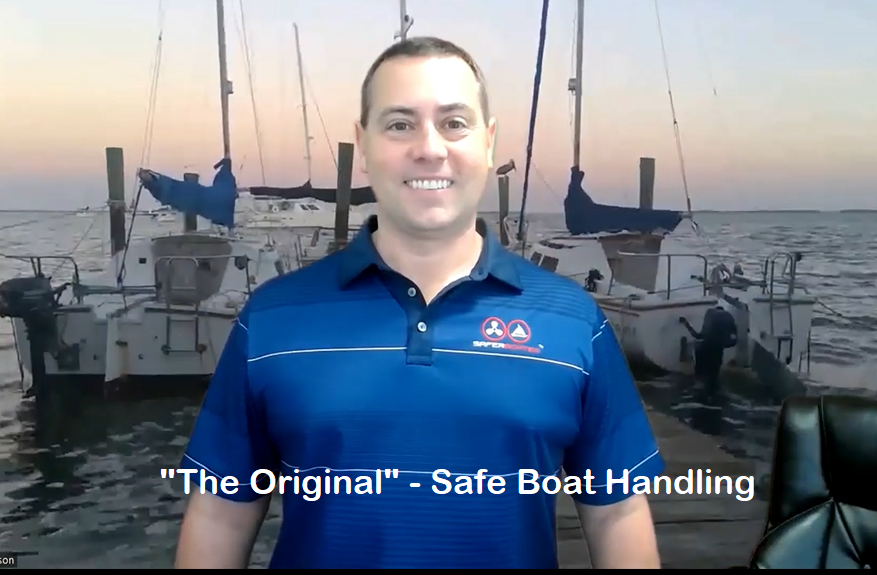
All classes are 16 hours and include:
Classroom sessions .
Starting and Safety Safety, preparation & weather Maneuvering concepts
Boating Equipment Registration & capacities Equipment requirements Preparation & fueling procedures
Navigation and Rules of Driving Navigation rules of the road
Aids to Navigation and Environmental Regs Aids to navigation Environment regulations
Exam Review Session Review for the Final Exam (separate session)
On-the-Water Boat Lessons
On-The Water (Deck Hand) Engine & electrical systems Starting procedures
Docking Leaving & returning to a slip Close-quarters maneuvers
On-The Water (Deck Hand) Anchoring Steering a range Proceeding to a destination Person in Water rescue
Final Exam Skill
Certified Drivers License, Certified in all states! Earn your boat insurance savings by joining boat lessons.
- Opening of the Bay 2024
- Blue Lane Rentals
Safe Powerboat Handling
Drivers Education for Boaters TM
US Coast Guard Approved
This 16-hour hands-on, on-the-water course is for anyone who wants to learn how to safely operate a powerboat or improve their on-the-water boat handling skills. No experience necessary. The topics are covered using a variety of techniques in the classroom and dockside, emphasizing on-the-water practical application of all skills. Topics covered include:
Instructor: US POWERBOATING Certified Instructor
Age: 12-adult
Group Size: 4 – 8
Time: 9:00 am – 6:00 pm
Certifications Earned: Safe Powerboat Handling certificate
Fee: $400/per person ($450/per person if less than two weeks before course), includes all books, safety equipment and on-the-water instruction.
back to top

Safe Powerboat Handling Course

This 16-hour hands-on, on-the-water course is for anyone who wants to learn how to safely operate a small motorboat and improve their boat-handling skills on actual boats. Completing a power boating course makes good sense. You want to enjoy your day on the water feeling confident that you have the skills and knowledge to operate your boat safely and efficiently. Our hands-on, on-the-water courses taught by certified powerboat instructors provides the training you need.
The US Coast Guard and the National Association of State Boating Law Administrators (NASBLA) have approved this course and an increasing number of states have recognized it as meeting their requirements for a state boating safety education certificate.
On-the-water topics covered:
-Engine and electrical systems
-Starting procedures
-Leaving and returning to a slip
-Close-quarters maneuvers
-Steering a range
-Proceeding to a destination
-Person in water rescue
Classroom sessions:
-Safety, prep, and weather
-Maneuvering concepts
-Registration and capacities
-Equipment requirements
-Prep and fueling procedures
-Navigation rules of the road
-Aids to navigation
-Environment regulations
Tuition: $650 per person, including all course materials including Start Powerboating Right! textbook, Safe Powerboat Handling certification sticker, official logbook, sport powerboat certification standards, review questions, NASBLA supplement to Start Powerboating Right! NASBLA course completion card.
This is a four-evening course running 5:30 p.m. to 9:30 p.m. Minimum required for course is 4 students, with a maximum of 6 students per session.
CLICK HERE to fill out an annual Acknowledgement of Risk Form
- Charter A Yacht on San Francisco Bay
- Charter Yacht Management Program
- Yacht As A Business Webinar
- Owner Log-In
- Powerboat Club
- Sail-Share Club
- How Boating Clubs Work
- Private Powerboat Lessons
- Private Sailing Lessons
- Obtain Your Coast Guard Captain License
- Meditation + Sailing Day Retreats
- Wild As The Wind Writing + Sailing Retreat
- Studio 23 Events & Space Rental
- Safe Powerboat Handing Course
- Private Powerboat Lessons and Certifications
16 Hours of On-The-Water Instruction
Achieving greater skill and confidence through private learning.
This course is a 16 hour hands-on, on-the-water course and is your jumping off course either as a beginner or a returning boater needing to refresh skills. In this course you will learn how to safely operate a small motorboat and gain or improve your boat handling skills.
The US Coast Guard and the National Association of State Boating Law Administrators (NASBLA) have approved this course for the California Boater’s Card. The state of California recognizes this course as meeting their requirements for the California Boater’s Card.
The Safe Powerboat Handling course covers all the required education topics for you to operate safely and confidently on a small motorboat to 25′. There are no prerequisites to taking this course.
- Private Class for up to 2 students
- Instructor, fuel, boat, materials, and insurance included
- $3,400 for one person. Add a second person for $1,500
On-the-Water Sessions
- Engine & electrical systems
- Starting procedures
- Leaving & returning to a slip
- Close-quarters maneuvers
- Steering a range
- Proceeding to a destination
- Person in Water rescue
Classroom Sessions
- Safety, preparation & weather
- Maneuvering concepts
- Registration & capacities
- Equipment requirements
- Preparation & fueling procedures
- Navigation rules of the road
- Aids to navigation
- Environment regulations
Prerequisites
- None, no experience necessary!
Suggested Age
- 10–adult (may be affected by state minimum age)
Certification(s) Earned
- US Sailing/US Powerboating Safe Powerboat Handling Certificate (NASBLA Approved)
- You’re ready to take the California Boaters Card Test
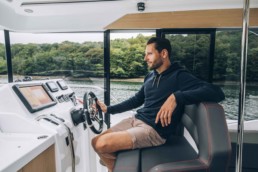
Get two free online sailing courses


Safe Powerboat Handling

Beginner to intermediate, 10 ft. - 33 ft. boats equipped with outdrive(s) or outboard(s)
This 16-hour hands-on, on-the-water course is for anyone who wants to learn how to safely operate a powerboat and improve their boat handling skills on actual boats. The US Coast Guard has approved this course and recognizes it as a standard in boat handling. Classroom sessions and on-the-water sessions totaling six to eight hours each, covering required education topics in which students learn:
On-the-Water Sessions
Starting procedures
Docking alongside
Close-quarters maneuvers
Steering a range
Proceeding to a destination
Person in Water rescue
Engine & electrical systems
Classroom Sessions
Safety, prep & weather
Maneuvering concepts
Registration & capacities
Equipment requirements
Prep & fueling procedures
Navigation and rules of the road
Aids to navigation
Environmental regulations
Prerequisites: none
Certification(s) Earned: US Powerboating Safe Powerboat Handling certificate.
Chart Your Course, Enroll Today!

Get A Class Recommendation
Not sure what class suits you best? Let us know your educational goals, and we can help you pick a course that will help you achieve them.
Thanks for reaching out. We’ll get back to you soon.
Home News Applications Open for the 2024 Youth Match Racing Championship for the Rose Cup
Applications Open for the 2024 Youth Match Racing Championship for the Rose Cup
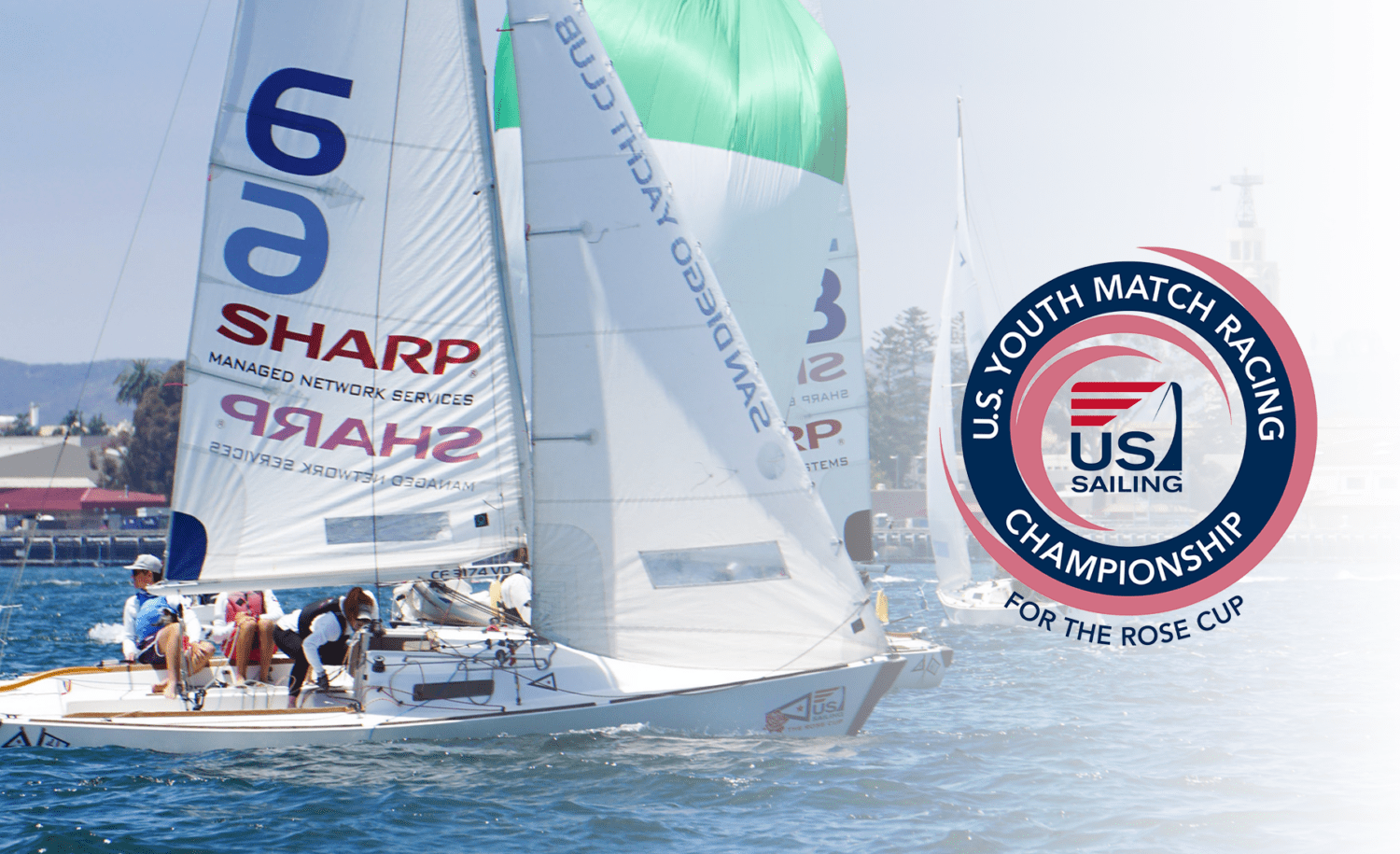
The Rose Cup is an invitational event open to sailors who have reached their 16th birthday but not their 21st birthday during the calendar year in which the event is held (i.e., must be born between January 1, 2004 and December 31, 2008). The Championship features world-class coaching and serves as an outstanding training ground for young sailors who are passionate about match racing and focused on competing at the next level.
“We are very pleased to see the competitive group of applicants we have received to date and welcome additional applications for everyone interested,” said Ryan Davidson, USYMRC Committee Chair. “This years event at Corinthian Yacht Club is not one you will want to miss!”
Applications submitted by April 1 will receive preference. Request an invitation here: https://form.jotform.com/240095124431143 . Competitors are asked to provide their top three match and fleet racing accomplishments over the past three years, and to write briefly about their experience racing on a 3-4 person keelboat.
Teams consist of crews of four, with at least one male and one female and a maximum crew weight of 660 pounds. Teams may be composed of members from different yacht clubs or sailing associations.
The Rose Cup started as an invitational youth match racing event in 2010. It was founded by members of Balboa Yacht Club in Newport Beach, California, and the Newport-Balboa Sailing & Seamanship Association. Its mission is to assist in the promotion of youth match racing in the United States and improve the quality of US competitors in national and international competition.
Thanks primarily to the efforts of US Sailing Match Racing Committee Vice-Chair and five-time US Match Racing Champion, Dave Perry, US Sailing made the event one of its three match racing championships, and it officially became the U.S. Youth Match Racing Championship in 2015.
Learn more about the championship: https://www.ussailing.org/competition/championships/2024-u-s-youth-match-racing-championship/
Copyright ©2018-2024 United States Sailing Association. All rights reserved. US Sailing is a 501(c)3 organization. Website designed & developed by Design Principles, Inc. -->
- Bahasa Indonesia
- Slovenščina
- Science & Tech
- Russian Kitchen
How safe is Moscow for tourists?
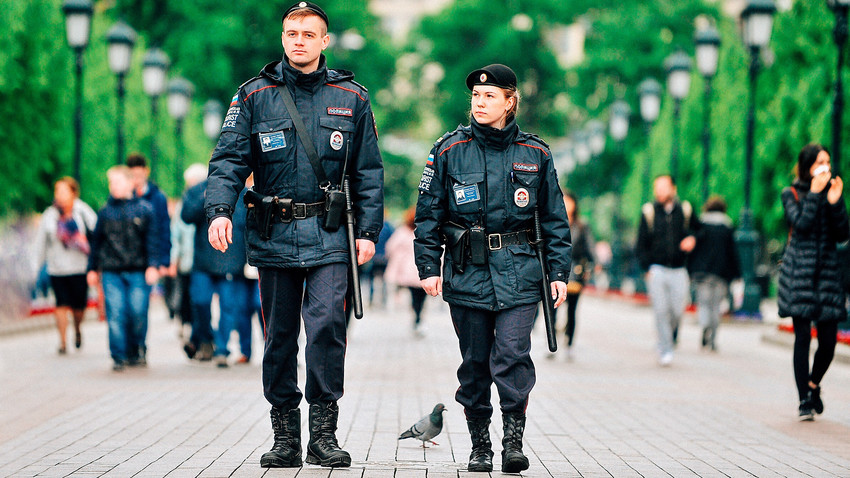
Moscow is an enormous city. 12 million people live here and many others commute in from the Moscow Region for work each day. And although there is no particular danger for either tourists or locals, it is, as in any big city, always worth using common sense. We'll tell you how to avoid running into trouble and which areas you might want to avoid.
Is the city center safe?

“I was shocked to see people using their laptops in parks in the evening,” says Nicholas Font from Argentina, who visited Moscow in May. “Of course, I was careful with my belongings, but I wasn't afraid of wearing my bag in the city center.”
The city center (and it is a very big city center) is generally convenient and safe for walking around. Pedestrians enjoy wide sidewalks and relatively calm road traffic. There are tourist police (who speak English), not to mention the ordinary police. Of course, there is never any guarantee that you won’t encounter a thief, and so to stay on the safe side keep your documents and money in places that are inaccessible to others. Red Square, Nikolskaya Street and Arbat are the most touristy places, so it’s worth being a little more aware of pickpockets in these areas.
Remember that in Moscow the police can stop you to check your ID. But unless you have committed some kind of crime there is generally nothing to worry about: You just need to show your passport and visa. "I was asked to show my passport and visa three times. Once in St. Petersburg and twice in Moscow," says our reader Ghazali Khan from Dubai. "Police in Russia are polite and professional. Most of them don’t speak English, but they understand your gestures."
Can you walk around at night?

Have you heard the expression "Moscow never sleeps?" Well, this is very true. The city center is buzzing 24 hours a day, and even on the outskirts you are likely to see people out and about even late at night. On a Friday or Saturday night there are likely to be even more people out on the streets than in the daytime. Of course, when it is minus 20 degrees Celsius in the winter, it isn’t as much fun as in the summer, but the only time Moscow really feels deserted is on the morning of Jan. 1 .
According to a recent poll conducted by The Economist , Moscow came in at 37 out of 60 big cities around the world in its Safe City Index. (Tokyo, Singapore and Osaka were at the top of the list). In other words, the Russian capital is pretty much average when it comes to safety.
Is it safe to go to the suburbs?

As a general rule, the police record more crimes in the city center than elsewhere. For instance, 2,846 crimes—mainly robberies and muggings—were recorded in 2018 in the Presnensky District between Arbat and Moscow City.
At the same time, over the past year these numbers have gone down by 20 percent, according to the prosecutor's office.
The city suburbs, with the exceptions of the Maryino and Perovo districts, are generally regarded as quite safe. So if you have a desire to see how ordinary Muscovites live, don't hesitate to hop on the metro and ride out to Vladykino, for example. Just work out your route in advance as you might not run into many people who speak English out there.
What about public transport and taxis?

When Russia hosted the FIFA World Cup in 2018, there were many stories of unscrupulous taxi drivers charging tourists astronomical amounts, sometimes as high as a thousand dollars, for a trip from the airport to the center. In order to avoid such unpleasant surprises, avoid airport taxis altogether and instead download Uber or Yandex Taxi on your phone and then pay by card rather than with cash. You will see the cost of the journey at the time of booking, and this won't change when you arrive at your destination. And if you have a strong desire to leave a tip, you can do so online. For your information, the cost of a journey from the airport to the city shouldn’t cost more than $30 (unless you order a luxury car, of course). While you can also find official taxis at the airport, these will be significantly more expensive than ordering one off Yandex Taxi or Uber.
Travelling around the city by metro, bus or trolleybus is generally quite convenient. The Moscow metro is one of the most reliable and safe (not to mention beautiful) underground transport systems in the world. The trains are new and run at short intervals. CCTVs are everywhere in the metro, and there are police at every station. Gabriel Infante Carrillo from Mexico City says that while riding the Moscow metro he had to put his backpack through an X-ray machine, but that the official was very polite with him. "I was not surprised at all, I knew beforehand that this could happen due to security reasons," he said.
Aboveground transport by and large uses specially allocated lanes, and while waiting you can pass the time at "smart" bus stops that have Wi-Fi, electric sockets and an electronic bus schedule in Latin script.
Can young women travel alone in Moscow?

It is generally rare for anyone in Moscow to pester women in the street or catcall them, especially if they see that she is a foreign tourist. Russian men are usually restrained and, even if they like a girl VERY MUCH, it is usually sufficient to politely decline their advances. So Moscow is a perfectly safe city solo women.
If using any of Russia Beyond's content, partly or in full, always provide an active hyperlink to the original material.
to our newsletter!
Get the week's best stories straight to your inbox
- Stopped by the police in Russia? Here’s what to do
- January 1st, the most special day of the year
- 5 things that disappoint foreign tourists in Russia
This website uses cookies. Click here to find out more.
- Safe Powerboat Training
- Safety & Rescue Boat Handling
US Powerboat Training
The best on-the-water powerboat instruction available.
OUR COURSES BOOK COURSE https://vimeo.com/384463888
Get out of the classroom and behind the wheel!
US Powerboat Training offers the nation’s best and most comprehensive hands-on powerboat courses. Whether you’re looking for your first experience at the helm or aiming to improve your skills, we can help. As the National leader in on-the-water powerboat training and education, our goal is to empower students with the skills and confidence they need to get more out of their boating experience and become more comfortable behind the helm.
Whether you are looking to operate a powerboat under or over 26 feet, we have a course to cover it.
BOOK COURSE
Our Courses
Whether you are a lifelong boater looking to brush up on your skills or have never been on the water before, we have opportunities available for you! We offer a range of boating courses for individuals of all skill levels. Our hands-on, on-the-water courses get you out of the classroom and behind the wheel for an educational experience unlike any other!


POWERBOAT HANDLING

CRUISING POWERBOAT

RACE MANAGEMENT
Safety & Rescue Boat Handling Learn More
Happy Boaters
We had the best boating experience!!! Kevin was so helpful and great to work with!! He went above and beyond expectations. He took us to the sandbar to search for sand dollars!! We also saw two dolphins � in the intercostal. One of the best days ever!!
Colleen Stephenson Rettinger
I couldn’t have been more lucky to be out on the water learning and experiencing sailing, power boating, rules of the water, and knots with such a great instructor. Kevin is very knowledgable and calm on the water. If you haven’t been on the water this would be the best way to start. Kevin has great people to help him out when needed. I never felt unsafe or uncomfortable. These courses gave me the confidence and skills to take my boat out.
Nothing but wonderful things to say about Kevin and his courses! Even though I have grown up on the water, he has taught me so many new things and given me the confidence to one-day soon own a boat of my own.
Jennifer Odell Hill
If you’re looking for the best instruction on how to sail or operate a power boat, Kevin is your guy. Through his relaxed and calm demeanor and detailed instruction, I gained the confidence I needed to dock a boat and change tack to dodge the ferries. He will practice with you until it becomes second nature.
Kevin and Chris were so fun! I would recommend sailing with them to anyone who is looking for a fun water activity! We will be back!
Courtney Kauffman
What an amazing experience. Awesome day, perfect lesson, and great memories. We will be back for sure!
Tannia Dougherty
We had an absolutely wonderful day out ! Completely surpassed all of our expectations! Captain Kevin was amazing. We can’t imagine going out with anyone else !
Veronica Mccune-Solomon
Capt. Kevin and Capt. Brian are top notch instructors! Their powerboating class far exceeded my expectations!
Keith Greene
Meet The Team
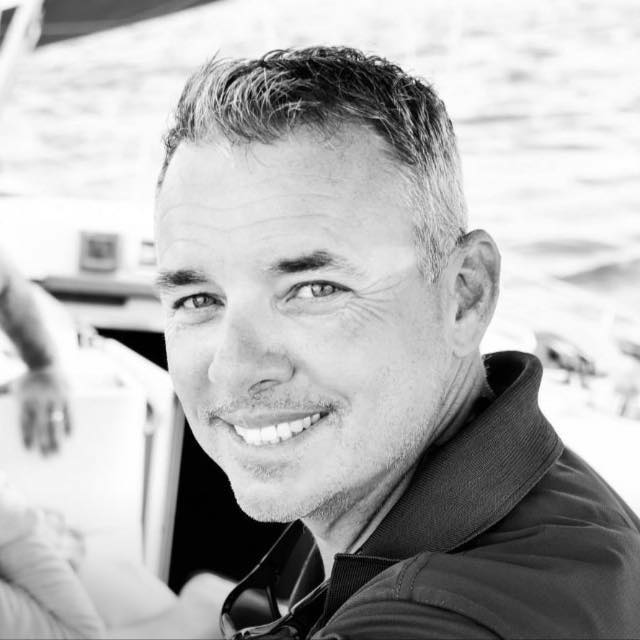
Capt. Kevin Hennessey
Kevin has been boating for 25 years. His love and passion for teaching and boating awarded him Instructor of the year from American Sailing Association for 2015.

Capt. Al Noble
Al has over 25 years on the water and tens of thousands of cruising hours under his belt. He maintains his 100 Ton Captians license and when he isn’t sailing can be found kayaking or fishing for trout in western North Carolina with his wife. Al has a passion for the sea that is unrivaled and experience that surpasses most.
OUR MISSION
Our mission aligns closely with the strategic objectives of the U.S. Coast Guard’s Boating Safety Division. We aim to support them in their mission to make America’s water ways safer for all and to minimize property damage, personal injury and loss of life by creating a new generation of educated and experienced recreational boaters. BOOK COURSE
Ready to schedule an appointment, or simply have a question? Fill out the form below or give us a call at (910) 279-2355!

910-279-2355

[email protected]

606 W West St, Southport, NC 28461

Virtual Tour
Experience University of Idaho with a virtual tour. Explore now
- Discover a Career
- Find a Major
- Experience U of I Life
More Resources
- Admitted Students
- International Students
Take Action
- Find Financial Aid
- View Deadlines
- Find Your Rep

Helping to ensure U of I is a safe and engaging place for students to learn and be successful. Read about Title IX.
Get Involved
- Clubs & Volunteer Opportunities
- Recreation and Wellbeing
- Student Government
- Student Sustainability Cooperative
- Academic Assistance
- Safety & Security
- Career Services
- Health & Wellness Services
- Register for Classes
- Dates & Deadlines
- Financial Aid
- Sustainable Solutions
- U of I Library

- Upcoming Events
Review the events calendar.
Stay Connected
- Vandal Family Newsletter
- Here We Have Idaho Magazine
- Living on Campus
- Campus Safety
- About Moscow

The largest Vandal Family reunion of the year. Check dates.
Benefits and Services
- Vandal Voyagers Program
- Vandal License Plate
- Submit Class Notes
- Make a Gift
- View Events
- Alumni Chapters
- University Magazine
- Alumni Newsletter

U of I's web-based retention and advising tool provides an efficient way to guide and support students on their road to graduation. Login to VandalStar.
Common Tools
- Administrative Procedures Manual (APM)
- Class Schedule
- OIT Tech Support
- Academic Dates & Deadlines
- U of I Retirees Association
- Faculty Senate
- Staff Council
Administrative Procedures Manual
Campus locations.
Physical Address: Bruce M. Pitman Center 875 Perimeter Drive MS 4264 Moscow, ID 83844-4264 [email protected] uidaho.edu
Phone: 208-885-6111
Fax: 208-885-9119
95.16 - Animals on Campus
- Position: Public Safety and Security Executive Director
- Email: [email protected]
Last updated: May 25, 2022
A. Introduction. Persons bringing animals onto campus (“Handlers”) are expected to be mindful that their animals may constitute real or perceived health threats to others, which include but are not limited to allergies, falls, and bites. In addition, the presence of an animal in an area may distract or interrupt certain activities, or may create a nuisance, including the nuisance caused by animal feces or damage to property. Accordingly, all Handlers are required to exercise reasonable control over the animal at all times in order to minimize risks to others and property. Handlers are responsible and liable for all damage or injury caused by the animal, whether to persons or property.
B. Purpose. This procedure establishes the University’s compliance with local, state and federal laws regarding animals, including those regarding individuals with disabilities as well as dogs-in-training.
C. Application of State and Local Laws. Idaho laws and Moscow city ordinances governing dogs and other animals are enforced on campus (see Moscow City Code Title 10, Chapter 5 Dogs and Other Animals ). Such ordinances include, but are not limited to, licensing requirements, leash requirements, the prohibition of leaving a dog tethered to any object on University property, and the requirement that the Handler remove and clean up the animal’s feces from University property.
C-1. Animals in Outdoor Spaces. Animals may be brought onto outdoor spaces on campus that are open to the public, except for university recreation fields if:
a. the animal is accompanied and appropriately restrained by a competent Handler at all times, and
b. the animal and the Handler are in compliance with all applicable laws and regulations.
Service animals described in C-2.a below may accompany their handlers as needed pursuant to the Americans with Disabilities Act.
Dogs in Training described in C-2.b below may be brought onto any outdoor locations that is open to the public subject to the requirements for identification and handling identified in C-2.b below. [rev. 4-18]
C-2. Animals Inside University Buildings. Animals not owned by the University are not permitted inside University buildings except as specifically permitted below:
a. Service Animals. By law, a service animal is a dog that is individually trained to do work or perform tasks for the benefit of an individual with a disability. The work or tasks performed by a service animal must be directly related to the individual’s disability. Handlers with disabilities may be accompanied by a service animal inside University buildings pursuant to the American with Disabilities Act, as amended. Students and University guests wishing to bring a service animal into any University buildings should first obtain an approved accommodation from Center for Disability Access and Resources (“CDAR”), which office can be reached at (208) 885-6307. Residents of University Housing wishing to bring a service animal into University Housing should follow the process outlined in C-2.c for Assistance Animals. Employees wishing to bring a service animal into any University buildings during work time should comply with the provisions of, and follow the process outlined in, section C-3. When it is not readily apparent, the University may ask the Handler whether the animal is required because of a disability and what work or task the animal has been trained to perform. Handlers are solely responsible for the care and supervision of the service animal. Handlers seeking to bring miniature horses inside University buildings should first contact CDAR at (208) 885-6307 to request permission. [ed. 6-15]
b. Dogs-in-Training. By law, a dog-in-training means a dog being specifically trained to develop social, environmental and other skills needed for admission to a training school or other program for assistance dogs. Also by law, (i) the dog-in-training must wear some article that identifies it as a dog-in-training at all times, (ii) the Handler shall carry and upon request display an identification card issued by a recognized school for assistance dogs or organization which serves disabled persons, and (iii) the Handler is fully liable for any damages or injuries caused by the dog-in-training whether to persons or property. Handlers may be accompanied by a dog-in-training pursuant to Idaho Code § 18-5812B and § 56-704A inside University buildings in locations that are open to the public. Locations that are open to the public means places on campus where members of the general public are invited to have unrestricted access, including common areas inside of University buildings. Some examples of campus locations that are not considered open to the public include, but are not limited to, work areas, classrooms and University Housing.
c. Assistance Animals. By law, assistance animals includes service animals as well as untrained emotional support or therapy animals. Residents of University Housing seeking to have an assistance animal in University Housing should contact CDAR at (208) 885-6307 to request a disability accommodation. Pursuant to the Fair Housing Act, a resident may keep an assistance animal in his dwelling unit as a reasonable accommodation if: (i) the resident has a disability, (ii) the animal is necessary to afford the resident with a disability an equal opportunity to use and enjoy the dwelling, and (iii) there is an identifiable relationship or nexus between the disability and the assistance the animal provides. When it is not readily apparent, CDAR will verify the existence of the disability and the need for the accommodation by requiring that the resident provide documentation from a physician, psychiatrist, social worker, or other mental health professional that the animal provides support that alleviates at least one of the identified symptoms or effects of an existing disability.
d. Any Other Animals. Any other animals that do not fall under the definitions described above in C-2.a, C-2.b, or C-2.c are not permitted inside University buildings without prior approval by the Executive Director of Public Safety and Security. Residents of University Housing should consult the University Housing Office regarding other animals that may be approved exclusively within University Housing. [ed. 6-15]
C-3. University Employees.
a. University employees requiring the assistance of a service animal for a disability must obtain an approved reasonable accommodation by Human Resources (“HR”) before bringing the service animal into work areas or otherwise having it during the employee’s work time on University premises. Employees should contact HR at (208) 885-3638 or refer to http://www.uidaho.edu/human-resources/employees/Request-an-Accommodation for more information.
b. University employees not requiring the assistance of a service animal for a disability may not bring any animals (including dogs-in-training) into work areas or otherwise have them during work time on University premises.
c. University employees who are required to reside on University premises may have animals that are not owned by the University on University premises with prior written approval from the Executive Director of Public Safety and Security
C-4. Removal of Animals.
a. Service Animals. The University may ask the Handler to remove a service animal from the campus if (i) the Handler is not complying with applicable laws, (ii) the service animal poses a direct threat to the health or safety of others or its presence fundamentally alters the nature of a program or activity, (iii) the Handler cannot effectively control the service animal, or (iv) the service animal is not housebroken.
b. Dog-in-Training. The University may ask the Handler to remove a dog-in-training from the campus if (i) the Handler is not complying with applicable laws or with this procedure, (ii) the dog-in-training poses a direct threat to the health or safety of others, (iii) the Handler cannot maintain control of the dog-in-training, or (iv) the dog-in-training is poorly groomed so as to create a health hazard.
c. Assistance Animals. The University may ask the Handler to remove an assistance animal from University Housing if (i) the Handler is not complying with applicable laws or with this procedure, (ii) the assistance animal poses a direct threat to the health and safety of others, (iii) the assistance animal would cause substantial physical damage to the property of others, unless the threat can be eliminated or significantly reduced by a reasonable accommodation, (iv) the assistance animal would pose an undue financial and administrative burden, or (v) the assistance animal would fundamentally alter the nature of University Housing operations.
d. Any Other Animals. The University may ask the Handler to remove any other animal from the campus if (i) the Handler is not complying with applicable laws or with this procedure, (ii) the animal poses a threat to the health or safety of others, (iii) the Handler cannot effectively control the animal, or (iv) if it is determined that the animal’s presence or behavior is disruptive to other members of the community or to activities occurring on campus.
C-5. Violations of this Procedure. Anyone observing any unauthorized animals on campus, any animal not appropriately restrained, or any other violations of this procedure should contact Campus Security at (208) 885-7054. Additionally, anyone observing violations of state or local laws should also contact the Moscow Police Department at (208) 882-2677. For emergencies, call 911 first.
C-6. Exempt Animals. Animals used by any University employee in the conduct of any approved research, extension, or outreach activities are exempt from this policy.
D. Contacts. Questions about this policy can be directed as follows:
D-1. Unrelated to Disability Accommodations:
Executive Director of Public Safety and Security, (208) 885-7209 www.uidaho.edu/public-safety-and-security; e-mail: [email protected]
D-2. Disability Accommodations for Employees:
Human Resources, (208) 885-3638 http://www.uidaho.edu/human-resources e-mail: [email protected]
D-3. Disability Accommodations for Students and University Guests:
Center for Disability Access and Resources, (208) 885-6307 https://www.uidaho.edu/current-students/cdar e-mail: [email protected]
Version History
Home Course Types Safety & Rescue Boat Handling
Course Types
Safety & rescue boat handling, course description, this 8-hour hands-on, on-the-water course is for anyone who will be using powerboats to perform safety and rescue functions. it is designed for regatta personnel, marine patrols, police and fire rescue personnel, park rangers, and on-the-water sailing instructors and coaches..
US Sailing Membership is not required to participate in a Safety and Rescue Boat Handling Course.
On-the-Water Sessions
- VHF radio communications
- Boat rescues, incl. capsizes
- Person in Water rescue
- Towing: astern & alongside
- Williamson turn
- Steering a range in/outbound
- Intercepting & maintaining position with moving vessel
- Use of bearings & GPS
- Search pattern
Classroom Sessions
- Weather & water briefings
- VHF radio procedures
- Safety & rescue equipment & procedures
- Towing concepts
- Search patterns concepts
- Plotting a position
- Calculating tides & currents
Prerequisites
- US Sailing/US Powerboating Safe Powerboat Handling Certificate
Suggested Age
Certification(s) earned.
- US Sailing/US Powerboating Safety and Rescue Boat Handling Certificate
Find a Course Near You
Copyright ©2018-2024 US Powerboating. All rights reserved. Website designed & developed by Design Principles, Inc.

IMAGES
VIDEO
COMMENTS
Course Types Safe Powerboat Handling. Course Description This 16-hour hands-on, on-the-water course is for anyone who wants to learn how to safely operate a small motorboat and improve their boathandling skills. No previous experience is required! The US Coast Guard and the National Association of State Boating Law Administrators (NASBLA) have ...
Safe Powerboat Handling Instructor Certification Program INSTRUCTORS An intensive 3-day course for advanced powerboat operators who will operate boats 26 feet and under, instructor candidates will learn the fundamentals of on-the-water instruction. Candidates must successfully demonstrate superior presentation, teaching and powerboat operation ...
These national and state approvals call for the course to include a total of six to eight hours of classroom sessions covering required education topics. US Sailing Membership is not required to participate in a Safe Powerboat Handling course. Single Engine Course - $1,095 per person plus fuel. Twin Engine Course - $1,295 per person plus fuel.
Candidates are evaluated on their powerboat handling skills as well as their knowledge, presentation, and evaluation skills. This course is taught by US Powerboating Safe Powerboat Handling Instructor Trainers. Prerequisites: Safe Powerboat Handling or Accelerated Safe Powerboat Handling Certification. Total Course Time: Three days, 24 hours.
US Powerboat Training offers the nation's best and most comprehensive hands-on powerboat courses. Whether you're looking for your first experience at the helm or aiming to improve your skills, we can help. As the National leader in on-the-water powerboat training and education, our goal is to empower students with the skills and confidence ...
Safe Powerboat Handling combines classroom instruction with practical, hands-on experience. Single Engine Course - $1,095 per person plus fuel. Twin Engine Course - $1,295 per person plus fuel. Recommended for: New boaters. First-time boat owners. Sailing instructors and coaches. Advanced boaters looking to brush up on skills.
As the National leader in on-the-water powerboat training and education our goal is to empower students with the skills and confidence they need to get more out of their boating experience and become more comfortable behind the helm. US Powerboating is an affiliate of US Sailing, the National Governing Body for the Sport of Sailing in the ...
The Mark Set Boat Handling Instructor Course prepares the Safe Powerboat Handling Instructor to teach the Student level Mark Set Boat Handling Certification Course. The course is offered as a one-and-one course. The actual instructor course is a one day, 10-hour course.
You will earn your NASBLA, DNR & US Powerboating Certificates in this US Powerboating course. These three licenses give you the equivalent of a Boating License, which makes you eligible to rent & operate boats in all 50 States. This course is for anyone who wants to learn how to safely operate a 25' or less powerboat and improve their boat ...
Instructor:US POWERBOATING Certified Instructor Age: 12-adult Group Size: 4 - 8 Time: 9:00 am - 6:00 pm Certifications Earned: Safe Powerboat Handling certificate Fee: $400/per person ($450/per person if less than two weeks before course), includes all books, safety equipment and on-the-water instruction. Accelerated Safe Powerboat Handling. This 8- to 12-hour hands-on, on-the-water course ...
Accelerated Safe Powerboat Handling "Behind the Wheel" 2-Day This NEW 2-day 16 hour hands-on, on-the-water course is for anyone who has taken a classroom boating course but needs experience to safely operate a small motorboat and improve their boat handling skills. Students will have added on-water practice spread out over 2 days.
COURSE DESCRIPTION. An intensive 3-day course for advanced powerboat operators who will operate boats 26 feet and under, instructor candidates will learn the fundamentals of on-the-water instruction. Candidates must successfully demonstrate superior presentation, teaching, and powerboat operation skills in order to complete this course.
Tuition: $650 per person, including all course materials including Start Powerboating Right! textbook, Safe Powerboat Handling certification sticker, official logbook, sport powerboat certification standards, review questions, NASBLA supplement to Start Powerboating Right! NASBLA course completion card. This is a four-evening course running 5: ...
The Safe Powerboat Handling course covers all the required education topics for you to operate safely and confidently on a small motorboat to 25′. There are no prerequisites to taking this course. Book Your Class. Private Class for up to 2 students; Instructor, fuel, boat, materials, and insurance included ...
Learn how to safely operate a powerboat and improve your boat handling skills. This 16-hour hands-on, on-the-water course is approved by the US Coast Guard and is recognized as a standard in boat handling. Our class includes classroom and on-the-water sessions totaling six to eight hours each, covering topics such as safety, weather, navigation, and more.
Are you a young match racer looking to hone your skills? Apply for the U.S. Match Racing Championship for the Rose Cup, June 26-30 at Corinthian Yacht Club in Marblehead, Mass.The Rose Cup is an invitational event open to sailors who have reached their 16th birthday but not their 21st birthday during the calendar year in which the event is held (i.e., must be born between January 1, 2004 and ...
Accelerated Safe Powerboat Handling. This course focuses on the practical application of skills, consequently it is NOT approved by the U.S. Coast Guard or the National Association of State Boating Law Administrators (NASBLA) as meeting requirements for a state boating safety education certificate.
As safe as it is for a Russian female as basic rules of safety apply: don't drink with people you don't know, don't follow anyone to a place you don't know, don't involve yourself in things you don't know etc. Moscow is one of the safest places in Russia. starbucksresident. • 1 yr. ago.
Russian men are usually restrained and, even if they like a girl VERY MUCH, it is usually sufficient to politely decline their advances. So Moscow is a perfectly safe city solo women. If using any ...
1. To focus on humans and creating the conditions for a full-fledged, high-quality, and happy life for all categories of residents. Participation of residents. in city governance. 2. To develop conditions for active involvement of residents in social life and making decisions on citywide issues; open digital government. Artificial intelligence.
Course Description. This 8-12 hour hands-on, on-the-water course is for anyone who has taken a classroom boating course but needs experience to safely operate a small motorboat and improve their boathandling skills. Students will be expected to study the course materials at home to challenge and pass a written exam covering equipment ...
Our hands-on, on-the-water courses get you out of the classroom and behind the wheel for an educational experience unlike any other! POWERBOAT HANDLING. Safe Powerboat Handling Learn More. CRUISING POWERBOAT. Basic Powerboat Cruising Inshore Powerboat Cruising Night Operations Endorsement Learn More. RACE MANAGEMENT. Safety & Rescue Boat ...
Animals in Outdoor Spaces. Animals may be brought onto outdoor spaces on campus that are open to the public, except for university recreation fields if: a. the animal is accompanied and appropriately restrained by a competent Handler at all times, and. b. the animal and the Handler are in compliance with all applicable laws and regulations.
Course Description. This 8-hour hands-on, on-the-water course is for anyone who will be using powerboats to perform safety and rescue functions. It is designed for regatta personnel, marine patrols, police and fire rescue personnel, park rangers, and on-the-water sailing instructors and coaches. US Sailing Membership is not required to ...